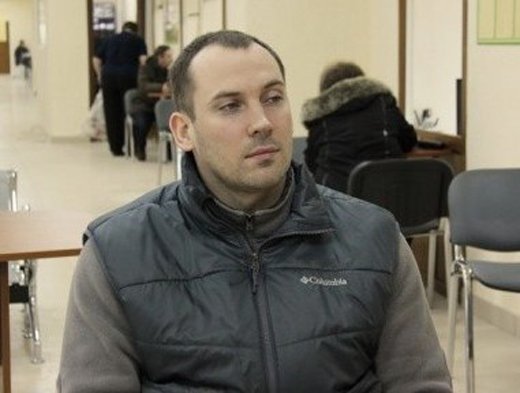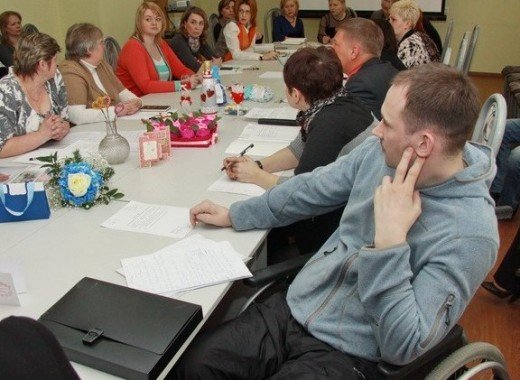Today the guest of the special project "No excuses" is Dmitry Belyaev, an entrepreneur from Cherepovets. He organized and raised a business from scratch in a completely unfamiliar area for himself. All for the sake of his family – a faithful wife and two children.
After the interview with Dmitry, I realized that the talk that real men have been transferred in our country is complete nonsense. They are there. They live in a provincial outback, raise children, do business. By opening and reading our conversation, you will also be convinced of this.
– Hello, Dmitry! I am glad to welcome you to our special project.
– Hello, Nastya! Thanks for the invitation.
– Tell us about your hometown and childhood?
– I was born in the city of Cherepovets, Vologda region. He lived with his parents. My father worked as a builder all his life: first as a foreman, and when the Soviet Union was gone, he opened his own business.
I studied at school. I've been playing sports since childhood. From the age of 12 – CMC in karate. I went to competitions, including the Russian Championship. He took prizes.
So the choice of profession after school is probably natural – I entered the institute at the sports faculty. He received the specialty of a trainer-teacher. Simply put, a physical education teacher. :)
– Who did you dream of becoming as a child?
– There was no special dream. Unlike all Soviet children, I didn't want to become an astronaut. :)
But I have always aspired to independence, so while I was studying at the institute, I worked in advertising for 6 years. This gave me experience in communicating with people.
Then he went into business with his father, became his deputy, communicated with suppliers, looked for cheaper places, solved organizational issues.
– Has life changed much after the injury?
– Of course. But there was no time to get upset.
I had a good incentive to live on – two children, the youngest of whom was not even a year old at that time.
It is clear that at first I did not want to accept myself in a wheelchair. It's like going to the other side. I didn't want to join any groups or rotate in this environment. But I gradually adapted.
– Who helped in this?
– Wife. She's smart. She didn't leave, she didn't leave. When she came to my hospital room, my joy knew no bounds, a smile blossomed on her face. Of course, my parents also supported me.
Moreover, relatives were even more nervous than I was. They supported me by just being there, and sometimes I had to calm them down. :)
– Did your friends leave you?
– There can't be many friends. And I didn't have many of them, and there are even fewer left. Those who are interested, they stayed, those who are not – they left. So there were other priorities.
– How did you come up with the idea to open an orthopedic salon?
– Several factors influenced. Firstly, after the injury, he himself faced the need for orthopedic devices. You come to the store, and they say to you: "We don't have it, but we can order it." The order goes for 2 weeks, and you need it right now.
Secondly, it is very difficult for a wheelchair user to find a job. Especially in my specialty. Although I did it once. For some time I worked as a physical instructor at the Overcoming center, I worked with children as part of a special state program. But, you know, you can't feed a family on a salary of 5 thousand rubles.
Thirdly, I analyzed the market and realized that there are not so many orthopedic salons in Cherepovets. The niche is in demand, but not filled.
And one day my wife suggested: "Let's open our salon?". I had been hatching this idea for a whole year, because I had to start everything from scratch. I didn't know how this business works, where to look for suppliers, which products are most in demand.
– The idea is half the battle. The second half is the start–up capital. Where did you find the money?
– I sold the car. In addition, I learned through the Urban Development Agency that you can get training and receive a subsidy from the Employment Center to organize your own business. I took courses, wrote a business plan and received money.
Then there was another grand in support of small businesses. Fought for him for a whole year. It was a long and troublesome job, but still I managed to get this money.
All this made it possible to launch the business in the spring of 2013.
– In your opinion, can Russian orthopedic products and rehabilitation products compete with Western ones?
– They can. But the Germans are still doing better.
– How are things going now? Who helps run the business?
– Things are going well. We cooperate with district organizations of disabled people, social protection agencies, and the martial arts center.
The wife helps. She's my legs. Where personal presence is not required, it is easier for her to run somewhere and settle everything.

– What is your state?
– While working with my wife together. I spent almost two years at home, practically without going out – I sat up. I get high going to work every day.
I believe that a businessman should know his business thoroughly. As I said, this is a new field for me, so I strive to delve into everything personally.
– So you are standing behind the "counter" yourself?
– Yes, including. By the way, there are curious cases. You can't tell right away that I'm disabled. People are wild that a disabled person can work. They come into the salon and, seeing that I'm in a wheelchair, they think that I'm having fun. They start swearing, they say, shame on you. And then, when you explain the situation, you feel ashamed yourself. They apologize.
Over time, when more points appear, I will hire sellers.
– Will you hire a disabled person?
– Why not? If it will work well, with pleasure. People with disabilities are often more responsible. For them, work is self–realization, a way to prove that you are no worse than others.
– What is the main problem, in your opinion, of people with disabilities?
– Internal psychological barriers. You already find yourself in a difficult life situation, and even society perceives you wildly.
Although I can't help but note that now people have much more positivity than negativity. The Soviet mentality is a thing of the past. Young people perceive disabled people as equals. It's great.
– How is the barrier-free environment in Cherepovets?
– An improvement trend is also visible. Ramps appear, and not just any, but corresponding to SNIPS. Although there are still a lot of objects where it has been done, if only it had been, if only they had fallen behind.
– Have you tried to fight it?
– I am a member of the city commission for social protection, which checks the compliance of ramps with building codes and regulations.

– Dmitry, our project is called "No excuses". What does this mean for you?
No one owes anyone anything. You need to achieve everything yourself. If you sit and whine, you will achieve nothing. From any situation, you need to draw conclusions for yourself. Not to sit at home, not to sit on anyone's neck.
– What motivates you in life?
– Family! Uniquely. I love children and my wife very much. I wouldn't do anything for myself–it's all for them.
– What do you dream about?
– I dream of playing football with my son.
As for business, everything is standard – to grow and develop. Don't depend on anyone.
– Wish something to the readers of Lifehacker?
Movement is life. Move more! And smile at people. :)
– A wonderful parting word. Thank you for the interview, Dmitry! :)
– And thank you.